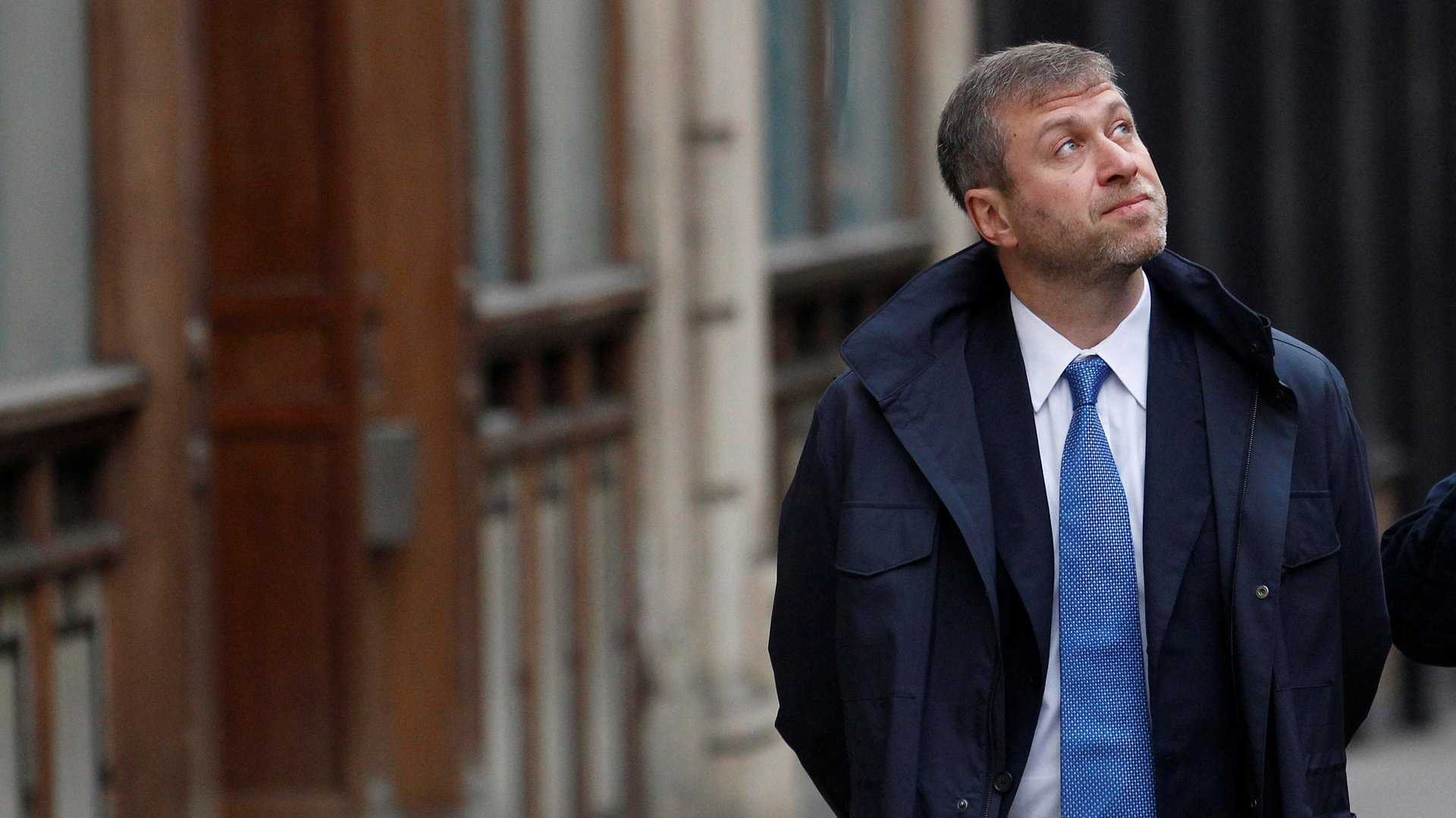What is the point of sanctioning Russian oligarchs?
The US, UK, and EU governments have responded to Russia’s invasion of Ukraine with economic sanctions, including a few measures meant to target individual oligarchs in Russian president Vladimir Putin’s inner circle.


The US, UK, and EU governments have responded to Russia’s invasion of Ukraine with economic sanctions, including a few measures meant to target individual oligarchs in Russian president Vladimir Putin’s inner circle.
Western governments see Russia’s wealthiest tycoons as key enablers of Putin’s reign. Sanctions targeting them are meant to impose financial pain on the Russian elite, who have stashed much of their wealth in real estate, sports teams, yachts, and business investments in western metropolises like New York, London, and Barcelona. At least some of the oligarchs’ assets are tied to Putin, who likely hides his vast wealth by divvying it up among friends and relatives so it can’t be traced back to him.
But it’s unclear what impact, if any, sanctions against Russian oligarchs will have on Putin’s actions. Russia’s elites don’t control Putin—they’re under Putin’s control, according to Daniel Fried, a former US diplomat who helped craft the country’s sanctions against Moscow following the 2014 invasion of Crimea. “[Putin] can jail them, or kill them, and the notion that the oligarchs can assert influence over Putin is foolish,” Fried told NPR on Feb. 26. In other words, seizing oligarchs’ assets and cracking down on the “golden passports” that allow wealthy Russians to buy citizenship abroad is unlikely to stop the tanks rolling across Ukraine.
In the long run, Western governments may hope sanctions will drive a wedge between Putin and Russia’s elite, weakening the autocrat’s power. But sanctions also serve a much simpler and more immediate goal: They offer an emotional salve to Americans and Europeans who are shocked by the images they’ve seen of violence in Ukraine and enraged about the obvious wealth that Putin’s inner circle flaunts in Western cities.
Proposed sanctions target Russian yachts and football clubs
Although Western governments have already imposed broad, punishing sanctions against Russia’s financial system—including kicking the country out of the global payments system known as SWIFT, which could cost the Russian economy 5% of its GDP—lawmakers are still clamoring for more specific sanctions against oligarchs. Although those measures may not have much as much impact, they can make “the west feel and look good because it is doing something,” as former Kremlin PR advisor Angus Roxburgh argued in the Guardian.
On Feb. 26, American congressman Don Young (R-AK) proposed a law to confiscate Russian yachts and commercial vessels in US waters, arguing that “wealthy Russian oligarchs shouldn’t live lavish lifestyles while Putin terrorizes innocent Ukrainians.”
Meanwhile, British lawmakers are clamoring for their government to strip property from oligarchs like Roman Abramovich, a Russian metals magnate who owns a sprawling mansion near Kensington Palace and the Chelsea Football Club. “Surely Mr. Abramovich should no longer be able to own a football club in this country,” Labour MP Chris Bryant argued in parliament. “Surely we should be looking at seizing some of his assets, including his 150-million pound home.”
In response to calls to inflict more targeted punishments against Putin’s inner circle, the White House vowed to launch a “multilateral Transatlantic task force” to strip oligarchs of “their yachts, their mansions, and any other ill-gotten gains that we can find and freeze under the law.”